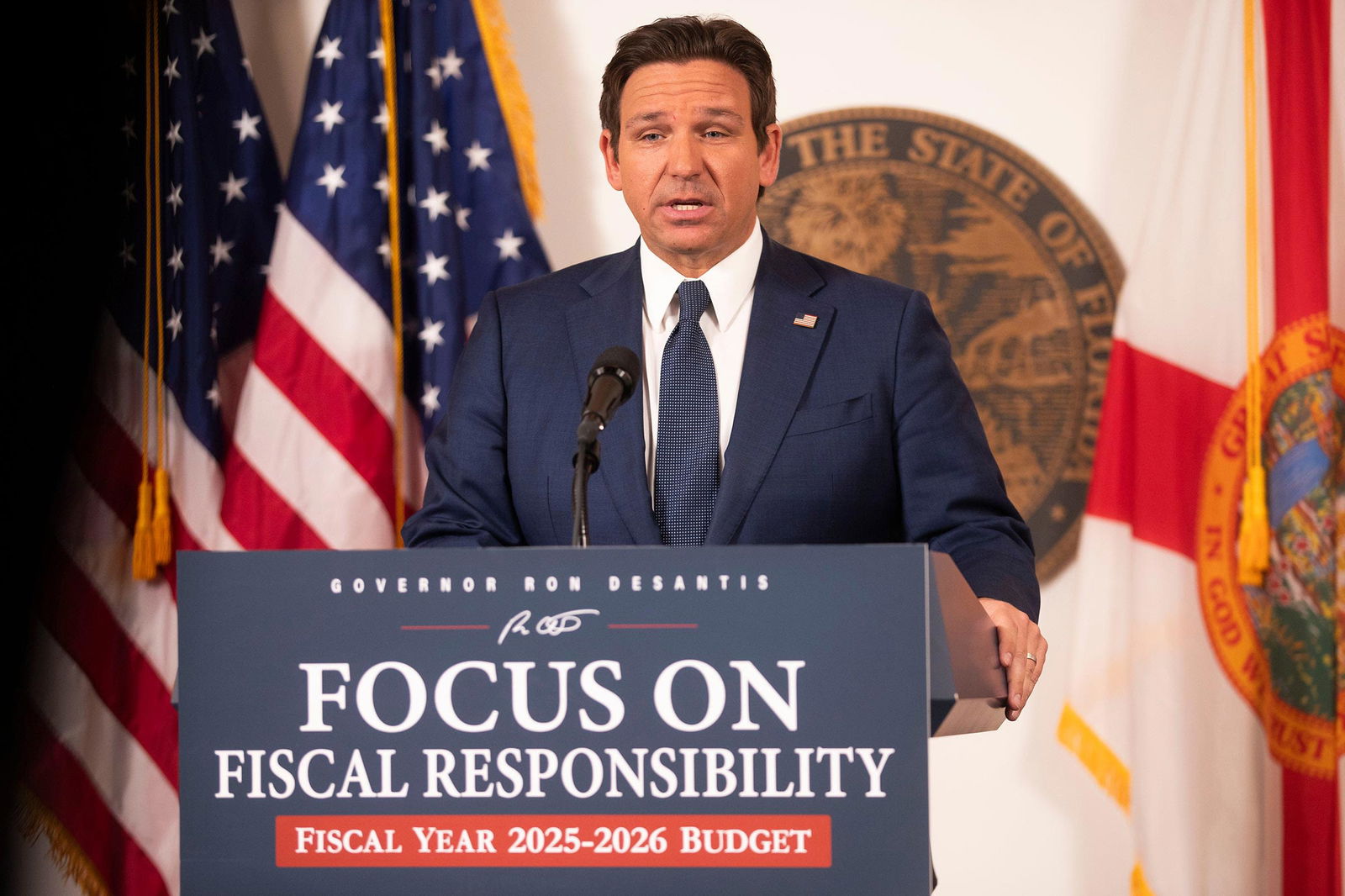GOP states go ‘DOGE-ing,’ mimicking Musk’s branding as they call attention to spending cuts

State Rep. Amanda Nedweski is shown during the Assembly session on September 14
By Eric Bradner, CNN
(CNN) — Republican governors and lawmakers in more than a dozen states are tapping into Elon Musk’s brand, borrowing from his Department of Government Efficiency’s approach — and in many cases, its name — to draw attention to their own bids to slash spending.
The state efforts have been slower to start and smaller in scale — a reality that follows years of fiscal austerity in states where Republicans have long been in power, and where budgets are already required to be balanced. In most cases, governors and lawmakers have merely added new names, or launched new committees, to highlight reductions for which they’ve spent years claiming credit.
Unlike the federal DOGE, many of those state efforts are task forces led by appointed conservative business leaders and empowered only to issue recommendations.
“There is a very real possibility that whatever recommendations come out of their state DOGE groups will actually be put in practice by legislatures. But they can’t do it on their own,” said Whitney Tucker, the director of state fiscal policy research for the left-leaning Center on Budget and Policy Priorities.
Most state budgets’ biggest areas of spending are K-12 and higher education and health care — particularly programs like Medicaid, where costs are shared with the federal government and states face legal restrictions on the changes they can make to eligibility and coverage. Other major budget drivers include transportation, prisons and pensions.
Unlike the federal government, which can operate at a deficit, states are already required to balance their budgets — which means, especially in Statehouses where Republicans control all levers of the government, the party has already implemented many of its fiscal priorities. Further steep cuts would quickly be felt in classrooms, by motorists and more.
Still, most state DOGE initiatives aim to build on elements of the federal DOGE.
In Florida and Iowa, it’s tech: GOP governors say they’ll use artificial intelligence to further identify ways to shrink state governments their party has long controlled.
In Oklahoma, it’s scrapping contracts. Gov. Kevin Stitt’s Division of Government Efficiency launched a website where it is posting regular updates, such as hundreds of thousands of dollars per month saved by eliminating some cell phones and landlines, and $200,000 saved per year by firing the contractors that mowed the state’s Capitol grounds and replacing them with automated mowers.
And in Wisconsin — where power is split between Republican-controlled legislature and a Democratic governor — GOP lawmakers are focused on workplace matters like diversity initiatives and remote work in state and local government.
One major difference between the federal and state efforts is speed. Musk’s DOGE moved quickly to dramatically slash spending and remake the federal government — a chaotic campaign that’s been riddled with inaccurate claims, seen some reductions quickly walked back and faced myriad legal challenges.
State DOGE efforts, though, are off to much slower starts. In Iowa, Gov. Kim Reynolds created the DOGE Task Force on February 10, with that task force’s initial meeting set to take place 60 days later. In New Hampshire, Republican Gov. Kelly Ayotte created a Committee on Government Efficiency with her first executive order; that committee has so far met just twice. In Georgia, Texas and South Carolina, proposals to create DOGE-style efforts are still making their ways through the GOP-led legislatures.
Kansas and Missouri have created online portals with DOGE branding for residents to submit ideas and feedback on government inefficiencies, but it’s not clear that those portals have yet led to concrete action.
The slow starts at Statehouses across the country come amid polls that reflect trepidation among Americans about DOGE and the Trump administration’s spending cuts. With an uncertain economic outlook that could rapidly change the political landscape, it’s too early to predict what will come of the state DOGE efforts.
Their recommendations could end up “just being a laundry list of conservative ideas that they wanted to put in place in the states already,” Tucker said.
If voters sour on Musk and the federal DOGE, though, Tucker said it’s possible that “a lot of these state DOGE groups will quietly fade back into state governments assessing what is efficient through their normal processes.”
Tapping into DOGE’s brand
Republican governors were eager to tap into DOGE’s brand — but wanted to make clear they’ve been attempting to slash spending for years.
“I like to say we were doing DOGE before DOGE was a thing,” Iowa Gov. Kim Reynolds said in January as she launched an Iowa DOGE Committee made up of business leaders that will submit a report with recommendations within six months.
“We’ve been DOGE-ing in Oklahoma before it was cool,” Stitt, the Oklahoma governor, said on social media.
“I say we were DOGE before DOGE was cool,” Florida Gov. Ron DeSantis said at a February new conference launching his own state-level DOGE.
DeSantis said Florida’s DOGE — in place for one year — will bring a new wrinkle to his cost-cutting efforts by using artificial intelligence.
He said the task force will abolish 70 state boards and commissions, audit local governments and scrutinize state universities’ spending, staffing and curriculum.
“This is the DOGE-ing of our state university system, and I think it’s going to be good for taxpayers, and it’s ultimately going to be good for students as well,” DeSantis said.
Other ambitious Republicans are similarly trying to tie themselves to DOGE.
Georgia Lt. Gov. Burt Jones, who is widely seen as a likely 2026 gubernatorial contender, highlighted the state Senate’s passage of a bill that would require state agencies to review all of their rules every four years and gauge the economic impact of those regulations with a simple email subject line: “Georgia does DOGE.”
The Texas Senate last week approved a measure that would establish a state office similar to the Musk-led federal DOGE.
“President Trump’s creation of the ‘Department of Government Efficiency’ inspired me to find ways Texas can save taxpayers and businesses money by cutting burdensome regulations,” Lt. Gov. Dan Patrick said in a statement.
Questions about scope, limitations
Wisconsin Assembly Republicans launched a Government Operations, Accountability and Transparency Committee — or “GOAT Committee,” seizing on a Musk-inspired meme name for their effort. The panel’s first hearing was focused on state agencies’ remote work policies.
Its GOP vice chair, meanwhile, demanded details from cities and counties about diversity policies, positions, grants and more — and when Democrats complained that he was overstepping, that vice chair, Rep. Shae Sortwell, wrote on social media: “Just because you don’t like it and whine about it, doesn’t mean I can’t do it.”
“They’re copying and pasting the substance of a meme of efficiency and fiscal responsibility,” said Rep. Mike Bare, the top-ranking Democrat on the committee. “It just strikes me as blatantly contrary to our general ‘Schoolhouse Rock!’ understanding of how government works.”
Republicans, though, described an effort that is limited by the reality of a government split between a GOP legislature and Democratic Gov. Tony Evers.
Rep. Amanda Nedweski, who chairs the Wisconsin Assembly’s GOAT Committee, said the committee is acting within the legislature’s oversight role. “We do not have the authority to bulldoze our way through state agencies wielding sledgehammers or scalpels,” she told CNN.
Nedweski, criticizing the state’s second-term governor, said the committee is “doing the tough homework and the heavy lifting that the state agencies should be doing themselves.”
She said the committee can identify ways to reduce regulations, eliminate redundancy and slash spending. But she acknowledged its limitations in a divided government, saying that Evers “needs to get a clue or step aside for a Republican governor if any real change is going to happen in Wisconsin.”
The-CNN-Wire
™ & © 2025 Cable News Network, Inc., a Warner Bros. Discovery Company. All rights reserved.

